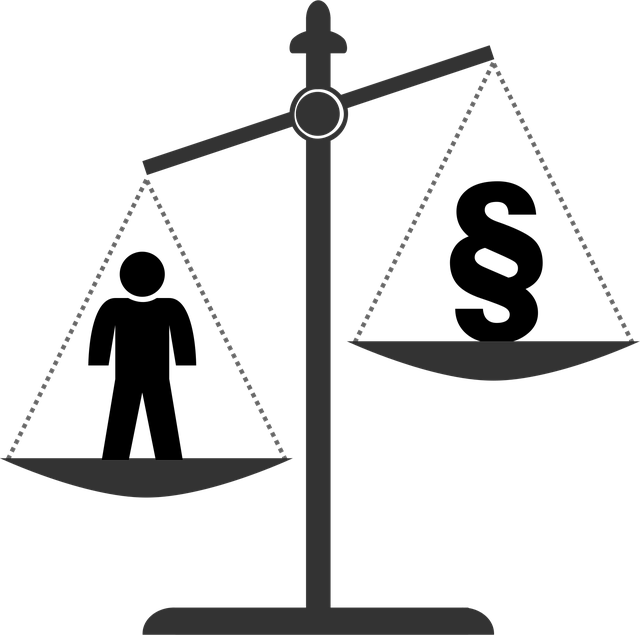Defense attorneys in Oregon are vital to the criminal justice system, ensuring fair trials and protecting accused individuals' rights. They strategically review evidence, challenge testimonies, and present arguments to weaken prosecution cases. Key roles include navigating legal procedures, advocating aggressively, negotiating plea bargains, and upholding ethical standards. Through meticulous investigation, strategic tactics, and client-centric approaches, they guide clients through complex systems, aiming for acquittals or reduced sentences, thereby safeguarding rights and maintaining system integrity.
In Oregon, defense attorneys play a pivotal role in ensuring fair trials and safeguarding individuals’ rights. This article delves into the multifaceted responsibilities of these legal professionals, exploring their strategic approaches and ethical obligations. From understanding the unique legal landscape of Oregon to building robust defenses, we analyze how defense attorneys navigate complex cases. Additionally, we highlight communication strategies, common challenges, and successes, offering insights into the critical work of defense attorney roles in shaping Oregon’s justice system.
- Understanding the Defense Attorney's Role in Oregon
- Legal Strategies Employed by Defense Lawyers
- Ethical Considerations for Oregon Defense Attorneys
- Building a Strong Case: The Defense Perspective
- Communication and Client Relations in Criminal Defense
- Challenges and Successes in Oregon Courtrooms
Understanding the Defense Attorney's Role in Oregon

In Oregon, defense attorneys play a pivotal role in ensuring fair trials and safeguarding the rights of the accused. Their responsibilities extend far beyond simply presenting a defense; they act as advocates, counselors, and strategic navigators throughout the legal process. Understanding the nuanced defense attorney roles is essential in appreciating the complexity of Oregon’s criminal justice system.
These professionals begin by thoroughly examining the evidence against their clients, identifying potential legal defenses, and constructing robust strategies. During pretrial hearings, they cross-examine witnesses, challenge inadmissible evidence, and advocate for their clients’ rights. In court, defense attorneys present opening and closing arguments, interrogate prosecution witnesses, and offer alternative explanations to mitigate charges or secure acquittal. Their expertise lies in interpreting laws, navigating judicial procedures, and advocating aggressively on behalf of their clients.
Legal Strategies Employed by Defense Lawyers

Defense attorneys in Oregon play a pivotal role in ensuring fair trials and safeguarding the rights of the accused. When it comes to legal strategies, these professionals employ a myriad of techniques tailored to each case. One common approach is to challenge the admissibility of evidence, scrutinizing witness testimonies and police procedures to weaken the prosecution’s case. This involves extensive knowledge of Oregon’s rules of evidence and the ability to navigate complex legal precedents.
Additionally, defense lawyers often rely on negotiation and alternative dispute resolution methods. They may attempt plea bargains, where a defendant pleads guilty to a lesser charge, or negotiate reduced sentences. These strategies can be highly effective in reaching favorable outcomes without the need for lengthy trials. The expertise of a defense attorney lies in their ability to balance aggressive advocacy with strategic negotiations, ultimately striving to protect their client’s interests within the legal framework.
Ethical Considerations for Oregon Defense Attorneys

Oregon defense attorneys face unique ethical considerations in their practice, especially given the state’s robust legal landscape. One key aspect is balancing zealous representation with professional responsibility. Lawyers must advocate aggressively for their clients’ rights while adhering to strict ethical guidelines, ensuring fairness and integrity throughout the legal process.
Additionally, confidentiality and client privacy are paramount. Oregon defense attorneys must maintain the secrecy of client communications, as revealed during consultations and proceedings. This confidentiality is essential for fostering trust between attorney and client, encouraging open discussions, and ultimately strengthening the defense strategy. Adhering to these ethical standards not only ensures the professional conduct of defense attorneys but also reinforces public confidence in the Oregon legal system.
Building a Strong Case: The Defense Perspective

Defense attorneys in Oregon play a pivotal role in building a strong case for their clients, employing strategic tactics unique to criminal defenses. Their primary objective is to ensure a fair trial and safeguard the rights of the accused. Defense lawyers begin by thoroughly investigating the case, reviewing evidence, and interviewing witnesses to uncover potential loopholes or inconsistencies. This meticulous process forms the backbone of their defense strategy.
They challenge the prosecution’s narrative by presenting alternative theories, questioning witness credibility, and raising legal objections. Skilled defense attorneys also leverage Oregon’s legal framework and precedents to construct a compelling argument that protects their client’s interests. Through these tactics, they aim to weaken the prosecution’s case, ultimately aiming for an acquittal or reduced sentence.
Communication and Client Relations in Criminal Defense

Effective communication and strong client relations are paramount for defense attorneys in Oregon, as they play a crucial role in navigating the complex criminal justice system. These lawyers serve as the primary point of contact for their clients, who often face daunting legal challenges. Through clear and empathetic dialogue, defense attorneys build trust, ensuring their clients feel heard and understood. This rapport is vital for gathering critical information, understanding clients’ expectations, and developing robust defense strategies.
Moreover, excellent communication skills enable defense lawyers to effectively advocate on behalf of their clients in court. They must articulate complex legal arguments persuasively while also explaining intricate procedural matters in simple terms that clients can grasp. By fostering strong relationships, defense attorneys gain valuable insights into their clients’ backgrounds, which can be instrumental in crafting compelling defenses and negotiating favorable outcomes in Oregon cases.
Challenges and Successes in Oregon Courtrooms

Oregon’s courtrooms present unique challenges for defense attorneys, who must navigate a complex legal landscape. One significant aspect is the state’s robust advocacy culture, where prosecutors often employ aggressive strategies. Defense lawyers play a crucial role in protecting individuals’ rights by countering these tactics with meticulous research and persuasive arguments. They ensure that their clients receive a fair trial, challenging evidence presentation and witness testimonies.
Despite these challenges, defense attorneys in Oregon have achieved notable successes. Their strategic interventions have led to reduced sentences, acquittals, and even the dismissal of cases due to procedural errors or insufficient evidence. These victories not only demonstrate the defense attorney roles’ effectiveness but also highlight their dedication to upholding justice and safeguarding the rights of those accused.
